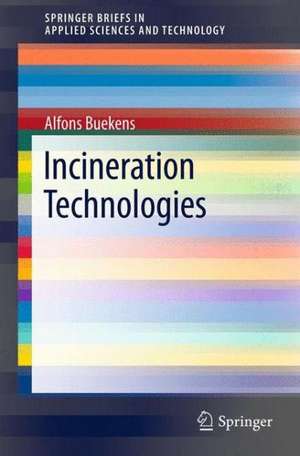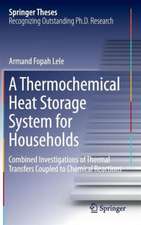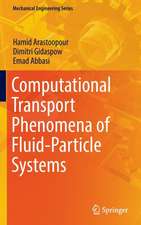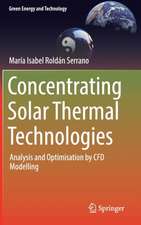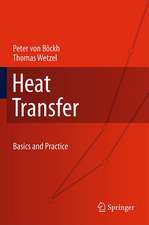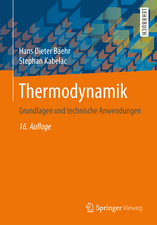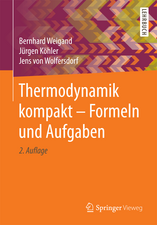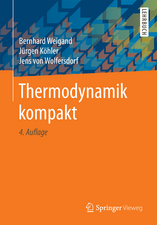Incineration Technologies: SpringerBriefs in Applied Sciences and Technology
Autor Alfons Buekensen Limba Engleză Paperback – 3 ian 2013
This book places waste incineration within the wider context of waste management, and demonstrates that, in contrast to landfills and composting, waste incineration can eliminate objectionable and hazardous properties such as flammability and toxicity, result in a significant reduction in volume, and destroy gaseous and liquid waste streams leaving little or no residues beyond those linked to flue gas neutralization and treatment. Moreover, waste incineration sterilizes and destroys putrescible matter, and produces usable heat.
Incineration Technologies first appeared as a peer-reviewed contribution to the Encyclopedia of Sustainability Science and Technology. It provides detailed treatment of the challenges of this technically complex process, which requires huge investment and operating costs, as well as good technical skills in maintenance and plant operation. Particular attention is paid to technologies for ensuring the complete burn-out of flue gas and residues and for controlling the resulting pollutants.
Din seria SpringerBriefs in Applied Sciences and Technology
-
 Preț: 380.29 lei
Preț: 380.29 lei - 17%
 Preț: 360.34 lei
Preț: 360.34 lei - 20%
 Preț: 386.12 lei
Preț: 386.12 lei -
 Preț: 380.07 lei
Preț: 380.07 lei -
 Preț: 377.95 lei
Preț: 377.95 lei -
 Preț: 382.32 lei
Preț: 382.32 lei -
 Preț: 376.59 lei
Preț: 376.59 lei -
 Preț: 379.09 lei
Preț: 379.09 lei -
 Preț: 378.12 lei
Preț: 378.12 lei - 20%
 Preț: 293.83 lei
Preț: 293.83 lei -
 Preț: 344.90 lei
Preț: 344.90 lei -
 Preț: 321.36 lei
Preț: 321.36 lei -
 Preț: 264.79 lei
Preț: 264.79 lei -
 Preț: 344.90 lei
Preț: 344.90 lei -
 Preț: 356.46 lei
Preț: 356.46 lei -
 Preț: 382.95 lei
Preț: 382.95 lei -
 Preț: 355.66 lei
Preț: 355.66 lei -
 Preț: 479.67 lei
Preț: 479.67 lei -
 Preț: 415.18 lei
Preț: 415.18 lei -
 Preț: 444.52 lei
Preț: 444.52 lei - 20%
 Preț: 301.86 lei
Preț: 301.86 lei -
 Preț: 409.43 lei
Preț: 409.43 lei - 20%
 Preț: 322.17 lei
Preț: 322.17 lei -
 Preț: 355.49 lei
Preț: 355.49 lei - 15%
 Preț: 462.51 lei
Preț: 462.51 lei -
 Preț: 377.18 lei
Preț: 377.18 lei -
 Preț: 355.93 lei
Preț: 355.93 lei -
 Preț: 382.95 lei
Preț: 382.95 lei -
 Preț: 378.12 lei
Preț: 378.12 lei -
 Preț: 378.12 lei
Preț: 378.12 lei -
 Preț: 380.07 lei
Preț: 380.07 lei -
 Preț: 380.07 lei
Preț: 380.07 lei - 20%
 Preț: 326.28 lei
Preț: 326.28 lei -
 Preț: 312.68 lei
Preț: 312.68 lei -
 Preț: 356.43 lei
Preț: 356.43 lei -
 Preț: 412.30 lei
Preț: 412.30 lei - 20%
 Preț: 225.31 lei
Preț: 225.31 lei -
 Preț: 378.12 lei
Preț: 378.12 lei -
 Preț: 376.59 lei
Preț: 376.59 lei -
 Preț: 195.87 lei
Preț: 195.87 lei -
 Preț: 376.22 lei
Preț: 376.22 lei - 20%
 Preț: 324.64 lei
Preț: 324.64 lei - 20%
 Preț: 288.73 lei
Preț: 288.73 lei -
 Preț: 377.57 lei
Preț: 377.57 lei -
 Preț: 261.91 lei
Preț: 261.91 lei -
 Preț: 381.98 lei
Preț: 381.98 lei -
 Preț: 273.64 lei
Preț: 273.64 lei -
 Preț: 410.87 lei
Preț: 410.87 lei -
 Preț: 379.68 lei
Preț: 379.68 lei -
 Preț: 374.30 lei
Preț: 374.30 lei
Preț: 377.18 lei
Nou
Puncte Express: 566
Preț estimativ în valută:
72.17€ • 75.36$ • 59.60£
72.17€ • 75.36$ • 59.60£
Carte tipărită la comandă
Livrare economică 15-29 aprilie
Preluare comenzi: 021 569.72.76
Specificații
ISBN-13: 9781461457510
ISBN-10: 1461457513
Pagini: 108
Ilustrații: XVIII, 93 p. 15 illus., 7 illus. in color.
Dimensiuni: 155 x 235 x 6 mm
Greutate: 0.16 kg
Ediția:2013
Editura: Springer
Colecția Springer
Seria SpringerBriefs in Applied Sciences and Technology
Locul publicării:New York, NY, United States
ISBN-10: 1461457513
Pagini: 108
Ilustrații: XVIII, 93 p. 15 illus., 7 illus. in color.
Dimensiuni: 155 x 235 x 6 mm
Greutate: 0.16 kg
Ediția:2013
Editura: Springer
Colecția Springer
Seria SpringerBriefs in Applied Sciences and Technology
Locul publicării:New York, NY, United States
Public țintă
Upper undergraduateCuprins
Glossary.- Definition of the Subject.- 1. Introduction.- 2. Evaluation of Waste Incineration.- 3. Waste Incineration.- 4. Incinerator Furnaces and Boilers.- 5. Selection of Incinerator Furnaces.- 6. Refuse-Derived-Fuel.- 7. Public Image of Incineration.- 8. Future Directions.- Bibliography.- Index.
Textul de pe ultima copertă
Waste incineration is the art of completely combusting waste, while maintaining or reducing emission levels below current emission standards. Where possible, objectives include the recovering of energy as well as the combustion residues. Successful waste incineration makes it possible to achieve a deep reduction in waste volume, obtain a compact and sterile residue, and eliminate a wide array of pollutants.
This book places waste incineration within the wider context of waste management, and demonstrates that, in contrast to landfills and composting, waste incineration can eliminate objectionable and hazardous properties such as flammability and toxicity, result in a significant reduction in volume, and destroy gaseous and liquid waste streams leaving little or no residues beyond those linked to flue gas neutralization and treatment. Moreover, waste incineration sterilizes and destroys putrescible matter, and produces usable heat.
Incineration Technologies first appeared as a peer-reviewed contribution to the Encyclopedia of Sustainability Science and Technology. It provides detailed treatment of the challenges of this technically complex process, which requires huge investment and operating costs, as well as good technical skills in maintenance and plant operation. Particular attention is paid to technologies for ensuring the complete burn-out of flue gas and residues and for controlling the resulting pollutants.
This book places waste incineration within the wider context of waste management, and demonstrates that, in contrast to landfills and composting, waste incineration can eliminate objectionable and hazardous properties such as flammability and toxicity, result in a significant reduction in volume, and destroy gaseous and liquid waste streams leaving little or no residues beyond those linked to flue gas neutralization and treatment. Moreover, waste incineration sterilizes and destroys putrescible matter, and produces usable heat.
Incineration Technologies first appeared as a peer-reviewed contribution to the Encyclopedia of Sustainability Science and Technology. It provides detailed treatment of the challenges of this technically complex process, which requires huge investment and operating costs, as well as good technical skills in maintenance and plant operation. Particular attention is paid to technologies for ensuring the complete burn-out of flue gas and residues and for controlling the resulting pollutants.
Caracteristici
Presents waste incineration as an alternative to landfills and composting, especially in densely populated regions Provides a balanced assessment of the benefits and challenges of this complex method of waste management Includes a survey of the technical basis of flue-gas cleaning and incineration
